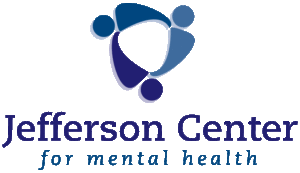PROFILE: Union Square Health Home
 Persons with serious mental illness die, on average, 25 years earlier than the general population, with the average age of death being 53.[i] The higher mortality rate is even more acute for persons with co-occurring substance abuse disorders; the average age of death is 45.[ii] Many of these deaths result from lack of adequate access and coordination of physical health care. Union Square Health Home (USHH) in Lakewood is working to change these statistics for the residents of Jefferson County.
Persons with serious mental illness die, on average, 25 years earlier than the general population, with the average age of death being 53.[i] The higher mortality rate is even more acute for persons with co-occurring substance abuse disorders; the average age of death is 45.[ii] Many of these deaths result from lack of adequate access and coordination of physical health care. Union Square Health Home (USHH) in Lakewood is working to change these statistics for the residents of Jefferson County.
Created via partnership with Jefferson Center for Mental Health, Metro Community Provider Network (MCPN) and Arapahoe House, USHH opened its doors to patients in 2013. Mindy Klowden, Director, Office of Healthcare Transformation at Jefferson Center, defines it as “a level five integrated health care home which offers psychiatric and mental health treatment, substance use disorder treatment, primary care, wellness services, and peer health coaching under one roof.”
USHH was designed by Jefferson Center and partners to be a long-term health home providing bi-directional care. Ms. Klowden summarizes the four primary goals of the project as:
- Increase access to integrated health care and care coordination for adults with serious mental illness and those with co-morbid conditions and/or co-occurring disorders.
- Improve the physical and behavioral health of adults with serious mental illness, with focus on those with elevated cardiovascular and metabolic risk factors and/or identified as at risk for substance abuse.
- Enhance the patient’s care experience and adherence to recommended treatments.
- Reduce or control the overall cost of care.
Bi-directional care is different from standard integrated care in that it involves bringing primary care into the mental health facility. USHH serves adult patients with serious mental illness and other chronic conditions who do not have a primary care provider or those already served by MCPN who would thrive in the integrated care setting.
At intake, eligible clients are connected with a Health Care Coordinator who will schedule primary care appointments, complete necessary screenings, and arrange with Arapahoe House in the event of a positive screen for substance abuse. The health care coordinator continues to assist as treatment continues by making additional appointments. Additionally, a peer health coach helps the patient establish wellness goals and review the care plan generated by their team of providers, which can include primary care physicians, psychiatrists, therapists, and substance use treatment specialists. This multi-disciplinary team then meets weekly to discuss patient progress and treatment.
The health home is partially funded through a four-year Primary Care Behavioral Health Integration grant from the Substance Abuse and Mental Health Administration. While they intend to continue operations beyond year four, Ms. Klowden outlines USHH’s challenges and need for payment reform. “We are using capitated payments from Medicaid, managed through the Behavioral Health Organization, or fee-for-service billing to commercial payers for behavioral health services. Primary care is utilizing separate fee-for-service billing or per diem payments to Federally Qualified Health Centers. In neither case are critical components of integrated care reimbursable, including care coordination, health coaching, and provider to provider consultation.” Klowden notes that it is not a sustainable model currently, and has greatly hindered innovation and higher levels of integration.
The exchange of electronic health information is also hindering innovation as behavioral health and primary care records are separate and cannot be easily integrated. This creates duplicate data entry and unnecessary obstacles to collaborative care. They are currently working with the Colorado Regional Health Information Organization (CORHIO) to develop ways to share information between partners but are unable to fully participate in the state-wide exchange of records.
Despite the challenges, USHH is well on the way to helping hundreds of Coloradans. Eighteen months into the program, 250 patients are enrolled and they anticipate 600 will be undergoing treatment by the end of the fourth year of funding. Preliminary outcomes indicate positive trends in wellness measures (functioning in everyday life, staying socially connected) as well as health (BMI, cholesterol).
Patient satisfaction is also high. Ms. Klowden tells the story of one of the patients served who had a long history of alcohol abuse, was very overweight, in poor physical health overall, and had nearly given up on ever changing her life. Shortly after enrolling in the health home, she began to see life differently. She learned that her physical and emotional health are intertwined, and realized she was not alone in her recovery. When asked about her experience at Union Square, the patient said “Within a matter of a few weeks of walking through the doors, USHH had given me medical treatment, psychiatric treatment, a therapist, proper medications, a way to escape from the pain of alcohol abuse…in a word, they gave me that which is the most important gift of all…HOPE.”
[i] National Association of State Mental Health Program Directors (NASMHPD) “Morbidity and Mortality in People with Serious Mental Illness”, 2006
[ii] “Substance Use Disorders and the Person-Centered Healthcare Home” National Council for Community Behavioral Health, Barbara Mauer, 2010
Previously published as part of CIVHC’s Spotlight on Innovation series.


